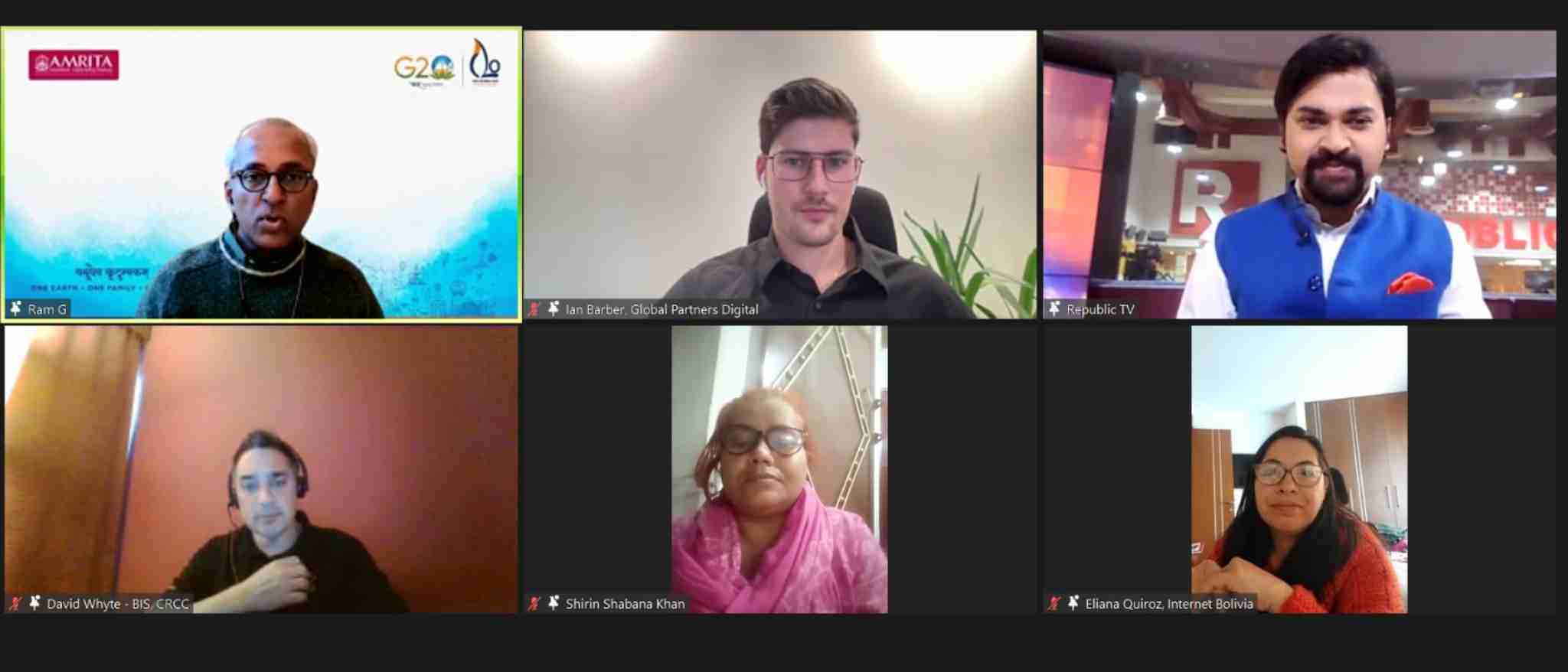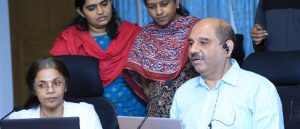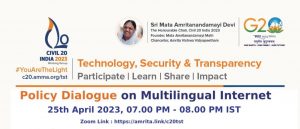Aarti discussed evidence-based and human rights based approaches. The human rights approach may create violence and terrorism Mainstream media has distorted facts, been an instrument of states and has inherent bias. Before mass media and the internet, the oriental bias and colonial mindset in western mindset against india was perpetuated. Western media channels with brand value and appealing to English speaking populations do not provide correct information in many instances.
We need more fact checking institutions, use of mainstream media as a filter to information and holding states accountable. Censorship – we need to know what views are without withholding data from public domains. Flouting Indian laws should be addressed. States should not be allowed to indulge in propaganda warfare. Internet regulation, MOU, full fledged agreement stating states will not engage in psychological warfare, propaganda, disinformation. We need values in news; it is fundamental to human existence.
David spoke on disinformation campaigns and how technology is used maliciously in the financial sector to make sophisticated targets on individuals in organizations. He recommended educating people, partnering with the private sector as they have access and redouble efforts to get them to help. He stressed on privacy check ups and said we should be aware that private companies have vested interest in having data for monetizing too.
Eliana mentioned that our private lives are not private anymore. The more private companies play a role in cyberspace, the more difficult it is. There is no jurisdiction over data as data brokers have no regulation.
Ecosystem of disinformation- private platforms play a role in the issue. In truth, private platforms lose data because once they sell databases, they cannot track the path of the databases. Other actors include marketing companies, data providers, data companies.
Regulation is key across the board and not just with peak companies. Users should learn to improve their skills as an important long term goal.
Mr Shawan Sen from Republic TV spoke about the media’s self-regulation. He highlighted that only good content and good ground reporting wins. Although ratings are a key consideration, channels also see if there is a cause for belief then act on a regular system of fact checking. Trained reporters differentiate between propaganda and reality by reporting what they see without prejudice. Media organizations should not need punitive actions against them to understand their role and to retain credibility.
Times have changed as now, there is 2 way communication with the audience speaking in real time. 87% of people say they need better education to discern fake news, disinformation and actual news.
Policy: trained journalists are required to deliver news and new perspectives are needed. Legacy platforms believe in rigorous processes. Value information by paying to subscribe to legitimate channels over free consumption of news on social media etc.
Shirin– cyberattacks target NGOs to create distrust about their work. People should know that NGOs are accountable to governments. NGOs should be transparent about checks and balances and processes. Although they get greater reach when they advertise themselves, they should go through the proper channels to gain public trust. Public needs education on how CSOs are working.
Nathan: Some bad actors in the industry have ideological motivation; not profit motivation. Greater transparency is needed on plans. Consumers should have security awareness and privacy education. Profit motivated actors engage in ad based monetization of disinformation. Countries should require the industry to have ‘nutrition labels’ for where facts are coming from and what’s the supply chain for them. Help drive that on demand side.
Ian: spoke on increasing multistakeholder approach and surveillance advertising.




